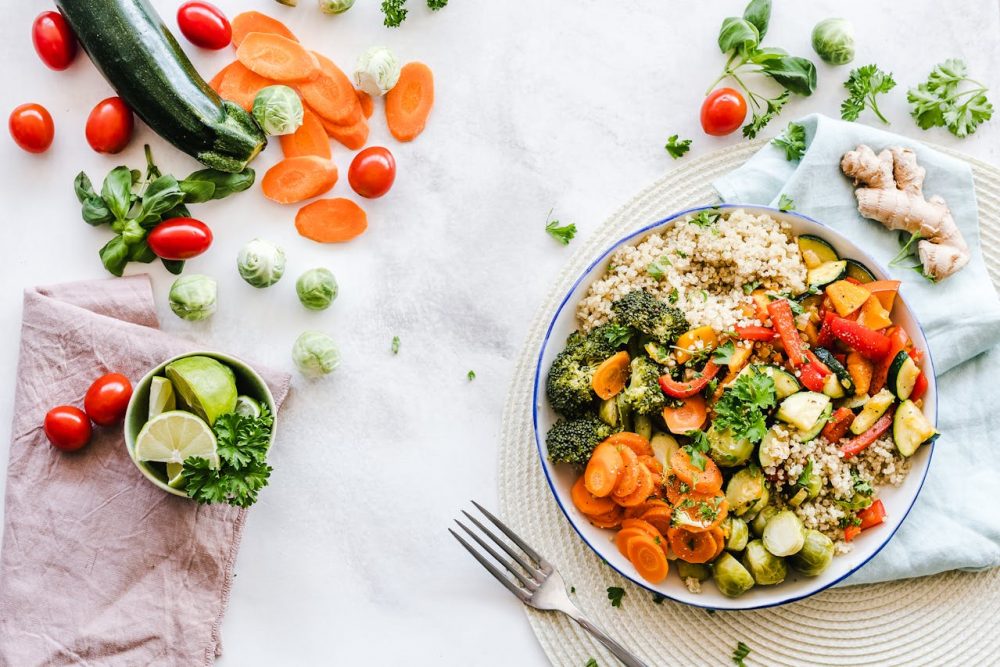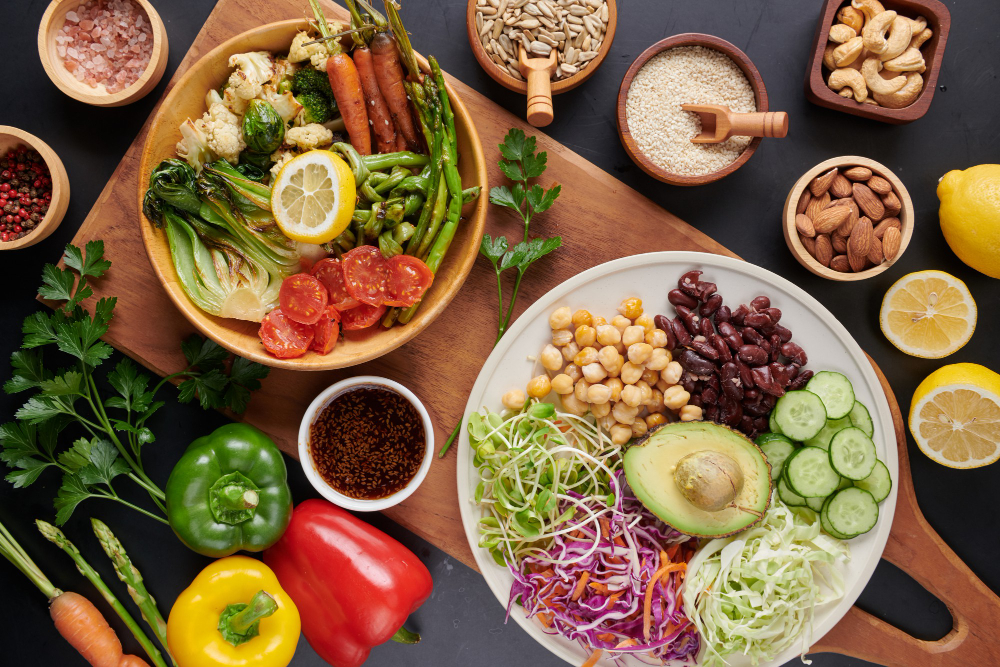Have you ever found yourself puzzled at a dinner party, trying to remember the difference between a vegan and a vegetarian? Or, while scrolling through a menu that caters to various dietary preferences and wondering which lifestyle might suit you better. This comprehensive guide will explore what is the difference between vegan and vegetarian diets.
What Is the Difference Between Vegan and Vegetarian?
At its most basic, vegetarianism is the practice of avoiding consuming meat, poultry, fish, and any other type of animal flesh. However, this lifestyle varies significantly in terms of restrictions. For instance, some vegetarians, known as lacto-ovo vegetarians, include dairy and eggs in their diet, while others might opt for just one of the two.

Frames For Your Heart | Unsplash | Vegetarian and vegan diets have higher intakes of vital nutrients such as fiber, vitamins, and minerals.
Veganism takes these restrictions a step further. Defined as a stricter form of vegetarianism, veganism excludes all animal products, including dairy, eggs, and even ingredients derived from animals, like gelatin and honey. Vegans rigorously avoid any form of animal exploitation, whether for food, clothing, or any other purpose. This dedication influences their diet and often extends into other areas of their lives, such as the products they buy and the entertainment choices they make.
What Is a Vegetarian Diet?
A vegetarian diet can be incredibly diverse, encompassing various fruits, vegetables, grains, pulses, nuts, and seeds. The diet's specifics can vary depending on personal ethical beliefs, health goals, or even religious reasons. Vegetarianism dates back to ancient times and has been a part of various cultures worldwide.
The types of vegetarian diets include:
- Lacto-Ovo Vegetarians: Avoid all animal flesh but consume dairy and egg products.
- Lacto Vegetarians: Exclude animal flesh and eggs but consume dairy products.
- Ovo Vegetarians: Avoid all animal products except eggs.
It's important to note that while pescatarians and flexitarians also limit their meat intake, they consume fish or occasionally other types of meat, thus not falling strictly under the vegetarian category.
What Is a Vegan Diet?
Adopting a vegan diet means committing to the strictest form of vegetarianism. Vegans avoid all animal-derived ingredients, which impacts not only their food choices but also their lifestyle decisions. This diet excludes meat, dairy, eggs, and often overlooked ingredients such as whey, casein, and certain forms of vitamin D3.

RDNE Stock project | Pexels | Vegan diet excludes meat, dairy, eggs, and often overlooked ingredients such as whey, casein, and certain forms of vitamin D3.
Veganism is about more than just dietary choices; it's a lifestyle committed to minimizing animal suffering and environmental impact. This comprehensive approach is why many vegans also avoid products tested on animals and activities that involve animal exploitation.
Health and Environmental Impacts of Vegetarian and Vegan Diets
Vegetarian and vegan diets are known for their health benefits, often associated with lower levels of saturated fats and higher intakes of vital nutrients such as fiber, vitamins, and minerals. However, without careful planning, these diets can lead to deficiencies in iron, calcium, zinc, vitamin D, and omega-3 fatty acids. Individuals following these diets need to consider fortified foods or supplements to maintain optimal health.
Environmentally, vegetarian and vegan diets are lauded for their reduced impact on the planet. Lower meat consumption translates to decreased greenhouse gas emissions, less water usage, and a smaller ecological footprint. Many people choose these diets for their health benefits and to support a more sustainable and ethical way of living.
So, what is the difference between vegan and vegetarian? One is fundamentally different than the other, as discussed above. However, one thing is for certain: whether you lean towards vegetarianism or veganism, both diets offer profound health and environmental benefits.
As our understanding of these lifestyles deepens, it becomes clear that the choice between vegan and vegetarian can hinge on personal beliefs, health goals, and the extent of commitment to animal rights and environmental sustainability.











